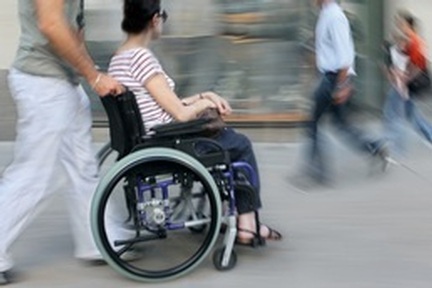Care workers and people with disabilities lobby Parliament over sleep-in back pay
The #SolveSleepIns Alliance has been lobbying Parliament today to highlight their growing anxiety over the sleep-in back pay crisis.

Last year the Government said care providers had to pay back home care workers, after two tribunal cases found care staff were only being paid a flat rate allowance rather than the minimum hourly wage.
However providers are saying they can’t afford to and want the Government to take responsibility for funding the back pay. It is estimated the amount of back pay owed to care workers for overnight shifts over the last six years may be as much as £400m.
A recent survey by Agenda Consulting and Towers & Hamlins LLP revealed 20 per cent of front line staff are at risk of losing their jobs if the Government forces providers to compensate workers for lost earnings.
The #SolveSleepIns Alliance, which represents half of all organisations providing vital care services to people with learning disabilities and other health conditions, that require overnight support, is now calling on MPs and Peers to raise the issue directly with the health and social care secretary, Jeremy Hunt.
Tim Cooper, co-chair of Learning Disability Voices, called it “incomprehensible that for over three years of partnering with the Government and Ministers, we still lack a solution to the sleep-in crisis”.
He added: “The solution is obvious: the Government must commit to fully funding all sleep-in back pay now.”
Mary Woodall, who lives at a supported living service run by CMG and attended the lobby of Parliament, is “worried about who will fund back pay as there could be a loss of control over care. There may not be as much supported living or residential houses still standing depending on what happens with sleep-in staff.”
She said: "It’s important we have Government funding. We need support and residential care homes to stay open."
Michael Cheshire also attended the lobby of Parliament, and similarly lives at a supported living service. He said: “Having night staff makes me feel safe. If I feel ill there is someone to get help for me. If there wasn’t any night staff I would have to move out as I wouldn’t be happy.”
The situation has become as a “very real crisis” according to Dr Rhidian Hughes, chief executive of the Voluntary Organisations Disability Group, who said: “Time is running out and this pressing situation could have been averted had Government recognised before 2015 that workers performing sleep-in shifts needed to legally be paid the National Minimum Wage in their official guidance. These costs could then have been properly planned for and funded. Asking care providers to cover the back pay is not only unfair and unjust, but it is also making it very difficult for some organisations to continue.”
Care providers are expected to sign up to a HM Revenue and Customs scheme by the end of this year and pay the backdated wages by March 2019.
Latest News
 29-Jul-24
Dementia Bus gives carehome.co.uk staff insight into life with dementia
29-Jul-24
Dementia Bus gives carehome.co.uk staff insight into life with dementia
 27-Jul-23
UK's top home care agencies in 2023 revealed
27-Jul-23
UK's top home care agencies in 2023 revealed
 30-Nov-22
A quarter of older people keep their falls secret from family
30-Nov-22
A quarter of older people keep their falls secret from family
 29-Nov-22
'Covid-19 has not gone away' say terminally ill
29-Nov-22
'Covid-19 has not gone away' say terminally ill
 28-Nov-22
IT consultant who received poor care opens 'compassionate' home care business
28-Nov-22
IT consultant who received poor care opens 'compassionate' home care business